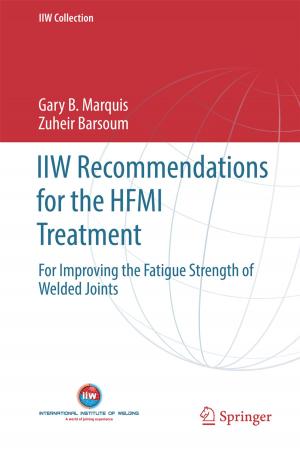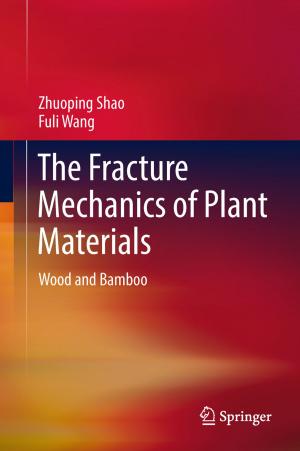Plant Microbiome: Stress Response
Nonfiction, Science & Nature, Science, Biological Sciences, Microbiology, Technology, Agriculture & Animal Husbandry| Author: | ISBN: | 9789811055140 | |
| Publisher: | Springer Singapore | Publication: | February 6, 2018 |
| Imprint: | Springer | Language: | English |
| Author: | |
| ISBN: | 9789811055140 |
| Publisher: | Springer Singapore |
| Publication: | February 6, 2018 |
| Imprint: | Springer |
| Language: | English |
This book presents state-of-the-art research on the many facets of the plant microbiome, including diversity, ecology, physiology and genomics, as well as molecular mechanisms of plant-microbe interactions. Topics considered include the importance of microbial secondary metabolites in stimulating plant growth, induced systemic resistance, tolerance to abiotic stress, and biological control of plant pathogens.
The respective contributions show how microbes help plants to cope with abiotic stresses, and represent significant progress toward understanding the complex regulatory networks critical to host-microbe interaction and plant adaptation in extreme environments. New insights into the mechanisms of microbial actions in inducing plant stress tolerance open new doors for improving the efficacy of microbial strategies, and could produce new ways of economically increasing crop yields without harming the environment. As such, this book offers an essential resource for students and researchers with an interest in plant-microbe interaction, as well as several possibilities for employing the plant microbiome in the enhancement of crop productivity under future climate change scenarios.
This book presents state-of-the-art research on the many facets of the plant microbiome, including diversity, ecology, physiology and genomics, as well as molecular mechanisms of plant-microbe interactions. Topics considered include the importance of microbial secondary metabolites in stimulating plant growth, induced systemic resistance, tolerance to abiotic stress, and biological control of plant pathogens.
The respective contributions show how microbes help plants to cope with abiotic stresses, and represent significant progress toward understanding the complex regulatory networks critical to host-microbe interaction and plant adaptation in extreme environments. New insights into the mechanisms of microbial actions in inducing plant stress tolerance open new doors for improving the efficacy of microbial strategies, and could produce new ways of economically increasing crop yields without harming the environment. As such, this book offers an essential resource for students and researchers with an interest in plant-microbe interaction, as well as several possibilities for employing the plant microbiome in the enhancement of crop productivity under future climate change scenarios.















